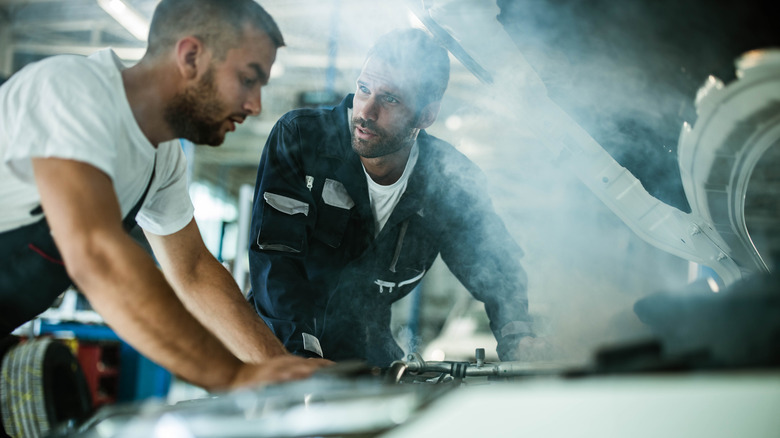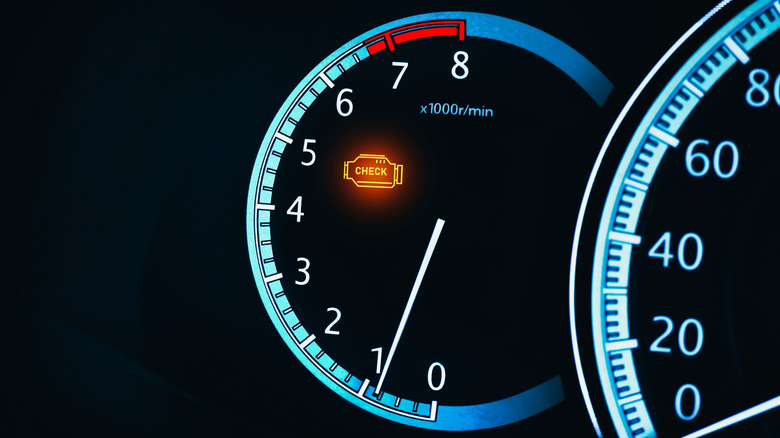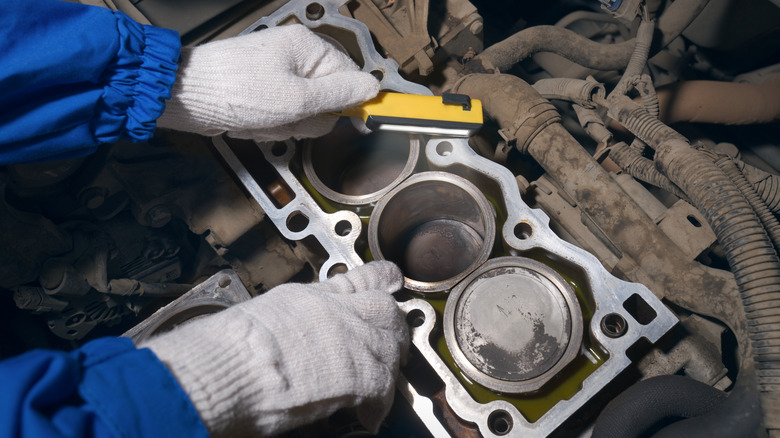A lot of people were celebrating when white smoke over the Vatican meant there was a new pope in town -– and that included plenty of gearheads with great ideas about what the new guy should use as his Popemobile. Of course, seeing white smoke coming from your car is rarely a reason for being happy. For one thing, it could be the sign of a cracked engine block that could require thousands of dollars –- and a complete engine transplant –- to repair.
The good news is that a cracked engine block can be relatively simple to prevent, since the usual causes can be under your control. For example, if your engine runs too hot too often, the metal of the block continues to expand and contract in step with the increase and decrease of the heat. Over time, that ongoing expansion and contraction can lead to cracks in the metal. So can excessive vibration or stress from off-roading, rough roads, and extreme engine knocking. In addition, even just regular old age can crack blocks. A little preventative maintenance can go a long way to reducing all of those potential problems.
There’s always a chance of manufacturing and installation problems as well, although there’s not much you can do about that except sue. In any case, catching the cracks early can make a big difference in your bank account.
Engine block issues: Cracking the code
You might think that a tiny crack in a massive piece of metal like an engine block wouldn’t be much to worry about. However, you have to keep in mind that the block isn’t, in fact, just a solid lump of metal. For instance, it also has built-in channels for carrying oil and coolant, which are vital to the engine’s operation. If a crack damages the integrity of those channels, the liquids could either leak out or mix with one another.
Then you can see the white smoke mentioned above. It can come from leaking oil or coolant falling on another hot engine part and burning or from the fluids getting into the combustion chamber, where they burn and come out with the exhaust gases. You should also watch for puddles of either fluid beneath your engine, and keep an eye open for a bubbly white liquid like frothy milk when you change your oil. That combination of oil and coolant can build up under the oil cap or in the tube where the dipstick lives. Just remember to let your engine cool down first, as temperature matters during an oil change.
Also, speaking of temperatures, overheating doesn’t just cause a cracked block — it also can be a symptom of one. If your motor suddenly starts running hot during normal operating conditions, it could mean the block has cracked. Really, any sudden decline in engine performance is something worth getting checked out.
Maintenance matters with engine blocks
True, a cracked block doesn’t have to be the end of the world, or even the end of the engine. Depending on the size of the problem and where it’s located, mechanics can fix a cracked block without welding it. That said, welding or brazing may be needed on bigger repair jobs, and a full-on engine swap costing you some serious coin isn’t out of the question.
With that in mind, let’s finish up with a few ways to avoid cracked blocks before they happen. For starters, keeping your engine running at the right temperature will help prevent extreme expansion or contraction of the block, and you can do that by always changing your oil and coolant following manufacturer guidelines. You should also go beyond that by giving hoses and belts a quick visual inspection while you’ve got the hood up, again changing them per your automaker’s instructions. These suggestions can help mitigate the effect of old age on an engine, too.
Nor should you knowingly take on tasks your vehicle isn’t made for. In other words, don’t bring your luxury sedan along to a rock crawling challenge or try towing a huge camper with a subcompact hatchback. The short story here — if you want to avoid the stress of a cracked engine block, don’t stress out your engine in the first place.




